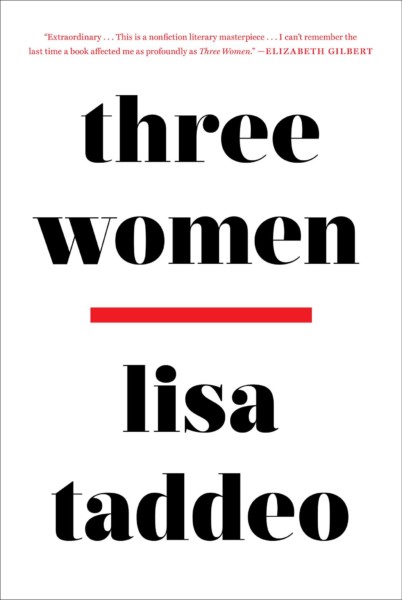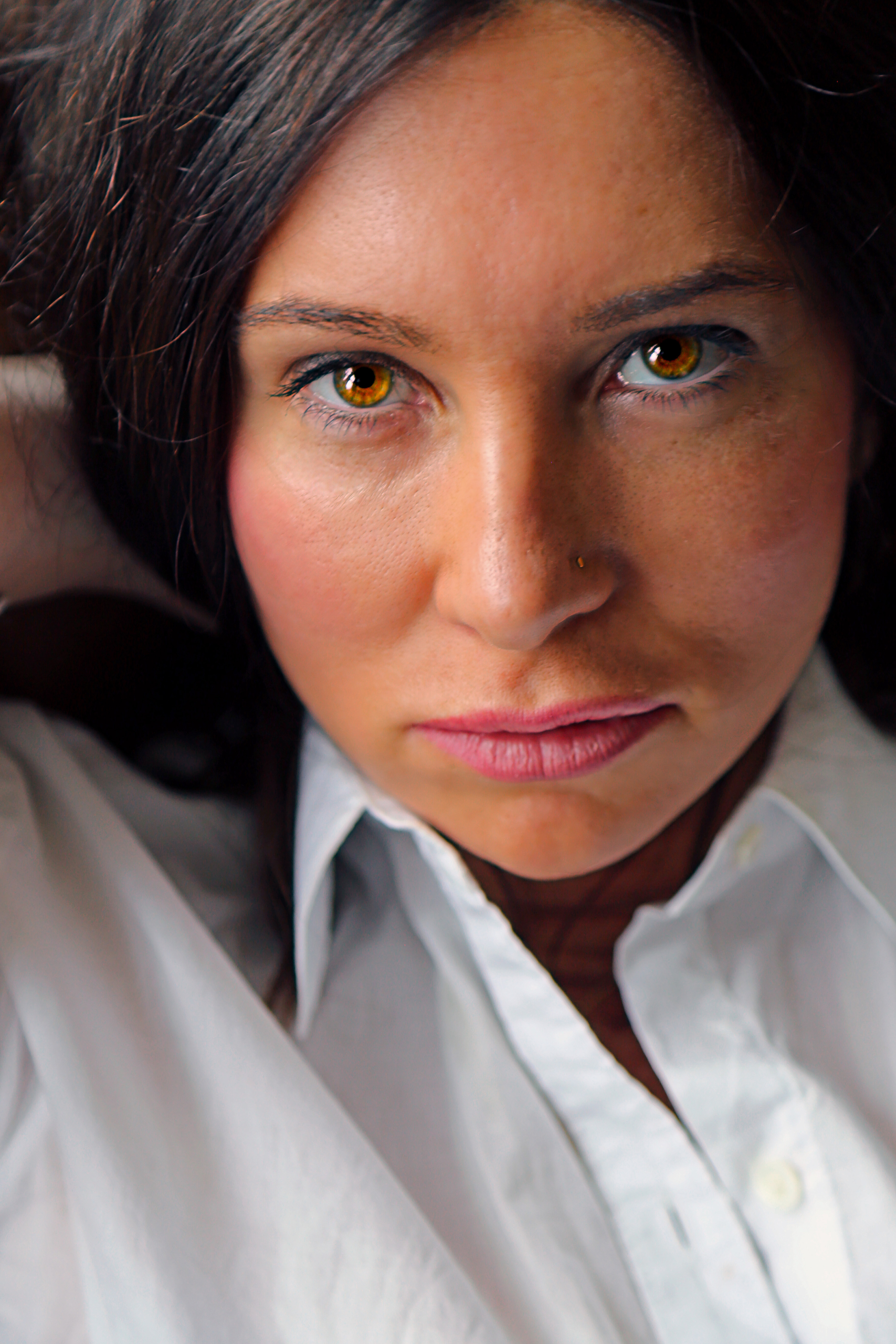Sign up for The Media Today, CJR’s daily newsletter.
Nearly a decade ago, Lisa Taddeo signed a book deal with Simon & Schuster to write about desire in America. Taddeo was on a hot streak: She was writing regularly for Esquire, New York, and other publications, including a reported fictional first-person piece told from the point of view of Heath Ledger in the days before his death, and a write-around of Jay-Z that drew serious criticism as well as comparisons to Gay Talese’s canonical 1966 Esquire profile “Frank Sinatra Has a Cold.”
Instead of riding that wave, she spent eight years writing what eventually became Three Women, a deeply reported, elegantly written, almost uncomfortably intimate portrait of three American women. In alternating chapters, Taddeo tells the story of Maggie, a young woman in North Dakota who has an affair with her English teacher; Lina, a married, middle-aged woman in Indiana in the throes of a passionate fling; and Sloane, a restaurateur in an open marriage who enjoys sexual and emotional configurations that seem as liberating as they are complicated. (Maggie’s name is real; Lina’s and Sloane’s were changed by the author.) In telling each of these stories—reported through years of interviews and with access to her subjects’ texts, emails, and social feeds—Taddeo reveals something universal in each of their stories: Desire can make us feel crazy, but it can also make us feel alive.
ICYMI: How magazines made Asian America
To achieve a rare level of intimacy, Taddeo practically moved into her subjects’ lives; in point of fact, she did move into their towns for years at a time. The result is a nonfiction book that feels as close to its subjects as a novel, like Adrien Nicole LeBlanc’s Random Family, or Anne Fadiman’s The Spirit Catches You and You Fall Down.
In the following interview, which has been edited and condensed, Taddeo explains how she came to know these three women so intimately.
That’s something I think about anytime I write about a human being. I’m not doing a good job if it’s not beautiful, if it doesn’t [present] their life in a way that’s both honest and lovely—because that’s all of our lives.
How many perfectly adequate books had to die so that this book could live?
Oh my god! I probably wrote, I would say without overstating it, 800,000 or 900,000 words, maybe more.
The original book was meant to be a different book, right?
I don’t know. My proposal was not incredibly comprehensive because I didn’t really know what I was going to do. The idea was to focus on a family with either a husband and a wife or two wives, some range of humans, plus two children, ideally a boy and a girl, who were over 18 and able to talk with me about sexuality while also being completely aware that their parents would be reading it. I found a couple, but there was a sort of lack of honesty—not even honesty, but feeling safe enough to talk about desire and sex. The next thing I went to look for was a community, a town where I could sort of isolate one specific spot in the world and find multiple subjects there.
How did you figure out where to go?
I drove across the country six times at least, potentially more, and I posted signs all over the place. In hair salons, on slot machines, in barbecue joints and gas stations, and supermarkets. They said something like, “Unrequited Love? If you have a tale of unrequited love…” or “We’re all different.” They had my number on little tear sheets, like a babysitter. [Eventually] I moved to Indiana not knowing what I was going to do. I literally didn’t know where to start. It was like, “I’m just going to start here.” I moved there without really knowing what I was doing, but it just felt better than being in New York. I lived there for a little over a year, maybe even a year and a half.
What was it like to not have any kind of personal life anymore?
It was super weird. It wasn’t completely that I didn’t have a personal life. It was just that I definitely subverted my own. I still do, to an extent that my family doesn’t exactly love. I don’t do this when I write fiction because when I write fiction, I’m very compartmentalized. But with nonfiction, with this nonfiction in particular, it was like if one of these women called me and said, “I’m doing this,” I’d say, “Can I come?” It was very important to me to get the immediacy of it. I definitely put the subjects ahead of me in that sense.

Cover of Taddeo’s Three Women. Image courtesy of Simon and Schuster.
I don’t think a lot of writers, especially ones who have a family, would be willing or able to do that.
It was, and it remains to be, a constant struggle. Often I stay up until three o’clock in the morning finishing. It’s become more of a struggle after having a child.
After so many years, how did you know when to stop reporting?
I remember my editor at Esquire, Tyler Cabot, said to me, “You know Lisa, at some point you just have to stop reporting.” I totally agree with that, but I just knew at a certain point that it wasn’t over. Still, to this day, sometimes I’m like, “Oh man, this happened, I want to add this!”
It seems like you put up as much as you asked for from your subjects. They probably know you as intimately as you know them at this point.
Yeah. I think when you’re being asked questions about yourself, you start to feel like someone is just hearing you and you just want to tell your story. They cared about my stuff, but they mostly were so happy to [be heard]. One of the things I say in the book about Maggie is sometimes there’s nothing better on earth than someone asking you a question. And that is how I think it felt for the most part.
Alongside these stories about women with intense passion that kind of overwhelmed them, took over their lives, the fourth woman is you. This book is your crazy passion.
Oh, one hundred percent. It’s interesting because when I started the book, I was very much single in the sense that I had lost my parents fairly recently. So I was both single on a dating level and completely alone in the world on an emotional level. My passion and my listening and my empathy came from this feeling of not wanting anyone else to feel as alone as I felt. So, yes, in that sense I definitely was very much at sea. I still have a lot of anxiety and panic, I am still very close to feelings of passion and also fear. And I think that was why I was drawn to them specifically.
Going back to the question about opening yourself up to subjects as they open up to you: How strange was it to kind of access that part of yourself after years of sitting across from a Jay-Z where you’re just a cipher with a tape recorder?
Yeah, that’s exactly what it is. It’s obviously intriguing to meet a Jay-Z or a Lebron James or a David Plouffe. But yeah, I always felt like I was writing about something that existed in a vacuum.
You got a little bit famous for one of those, when you went into the mind of Heath Ledger and wrote from his point of view after his death. I think some people felt like you took liberties.
I had lost my father somewhat recently before that, and then my mother had just been diagnosed with cancer and it was clear where [her diagnosis] was going from the start. I’ll never forget David Granger, the editor-in-chief [of Esquire] who had given me the assignment, wrote to me like, “How did Heath Ledger die? Can you find out in the best way that you can and just fill in the rest with your imagination?” I thought that was a really, really cool assignment. And then he said, “It doesn’t have to be any one thing, but it does have to be beautiful…”
He really made it easy for you!
Yeah. “Beautiful.” That’s something I think about anytime I write about a human being. I’m not doing a good job if it’s not beautiful, if it doesn’t [present] their life in a way that’s both honest and lovely—because that’s all of our lives. I didn’t want to sensationalize these stories. I wanted to show them as raw-ly and relatably as possible.
You took an off ramp for about a decade and your profession changed entirely. So what does it look like for you now that you’re back on the radar again?
You know, it feels strange because I remember being on the radar back then, as you say. It was both quieter and louder than it is now. That [Ledger] story lived for a while because the immediacy of the Internet was not what it is now. Writing was not what it is now. To an extent, online is more important because people talk about it immediately. And, yeah, things have a shelf life of, like, 24 hours. You can almost be assured that even if something terrible has just happened that somebody, something, more terrible will happen the next day.
Right.
I think that with a book, I’ve never experienced it obviously, but with a book, I wonder if it’ll be more like it was back then because books sort of live longer. It was so quiet for me for so many years in terms of being out in public, but it’s also been so long that I think I’m also a new person both personally and professionally. It’ll be interesting to see. I’m definitely a little frightened. My biggest concern is definitely the way that it will affect the three women.
Are you still in touch with all of them?
Yes.
How do they feel as the book is about to hit the world?
You know, I think Maggie is, for example, a little nervous. Nobody knows what to expect. I think Lina is probably the least nervous because it’s not really something that she’s going to experience in her community. I think that as long as Sloan remains undiscovered that it will be fine. I worry about that a lot because I know that that would be an issue.
Invariably, people are going to compare Three Women to Gay Talese’s Thy Neighbor’s Wife. Is that a disservice to your work or do you think it is in the lineage of that book?
I read Thy Neighbor’s Wife before I started writing this book. One of the reasons that I wanted to write this book is I felt that Thy Neighbor’s Wife was told from a very male perspective, which is totally fine. This is told from a very female perspective, which is also fine. I don’t think that they’re similar. I think they’re similar in their immersion. We both immersed ourselves.
And both books took a long time to write.
Yes. We’re talking about sex and desire. I think mine is more about desire and less about sex because I was more interested in the nuance and the emotions behind the acts.
THE MEDIA TODAY: A murky diplomatic leak roils Anglo-American relations
Has America ever needed a media defender more than now? Help us by joining CJR today.



